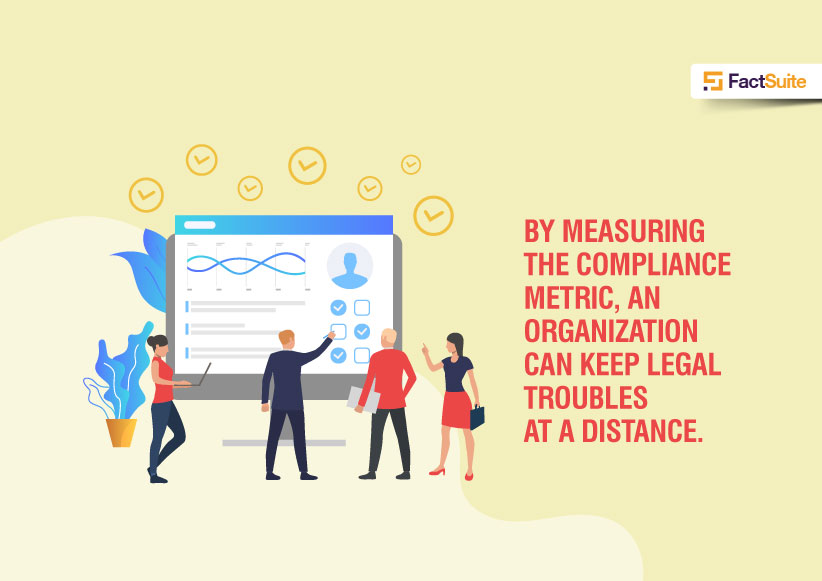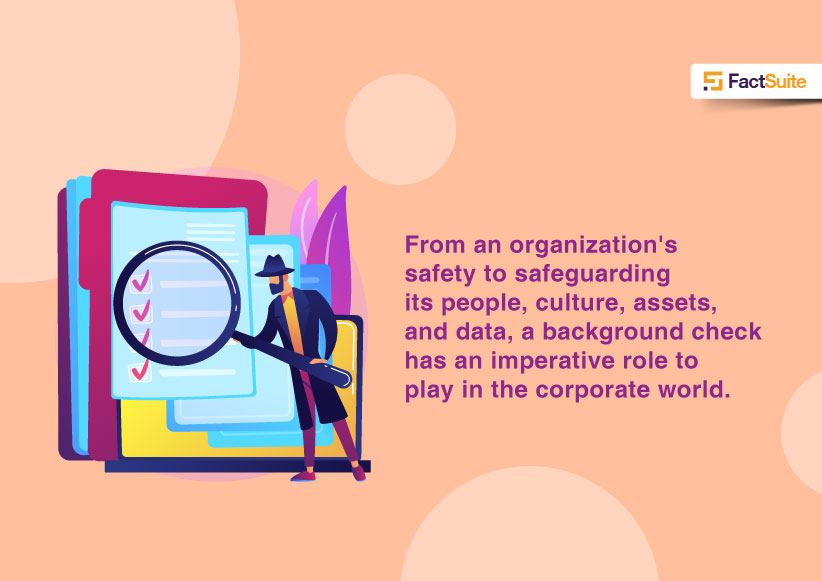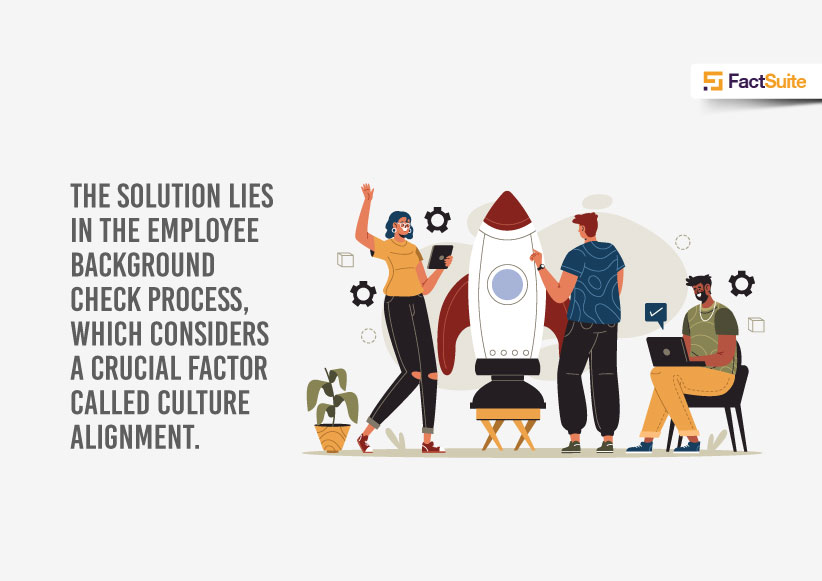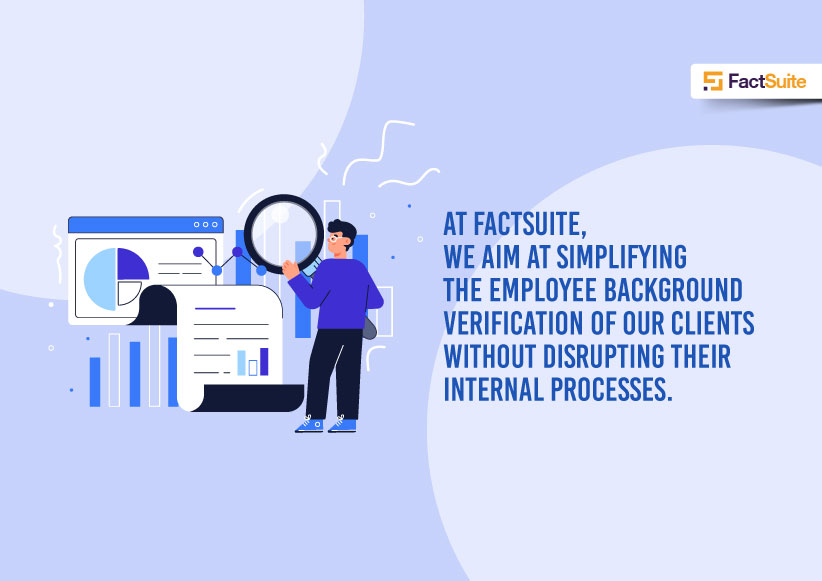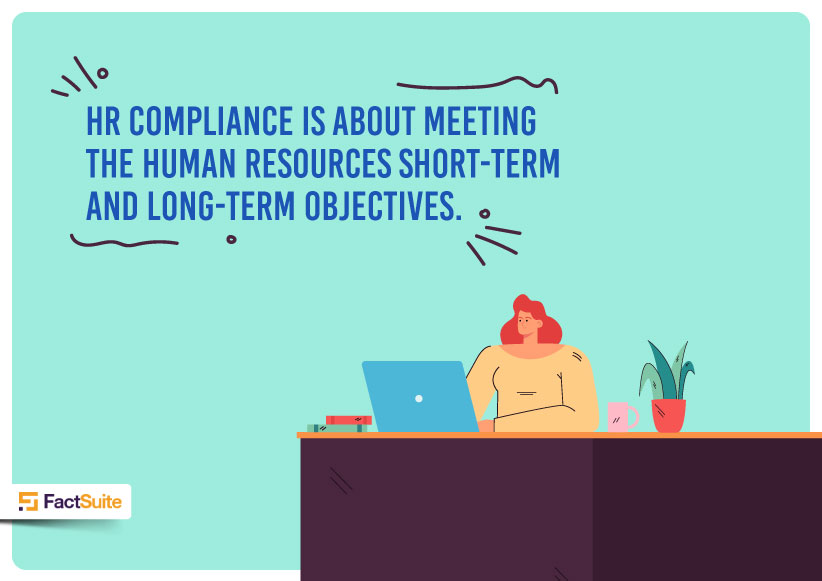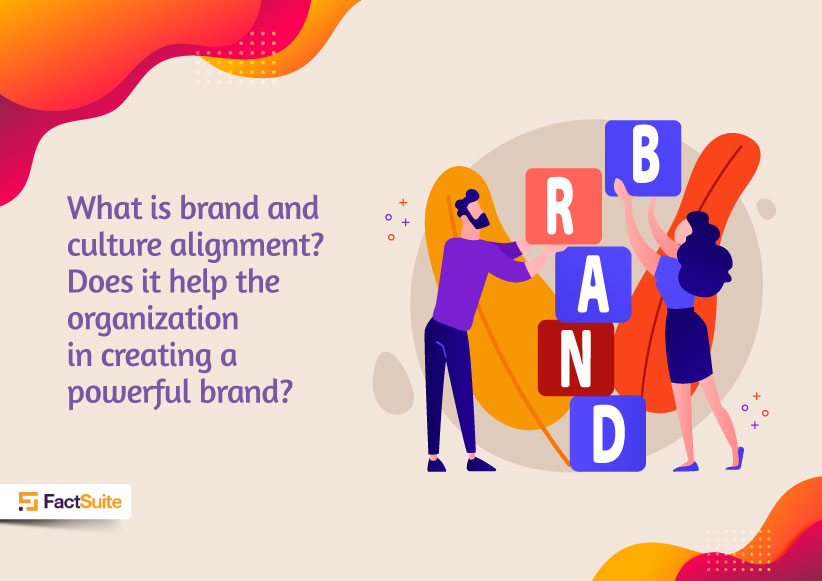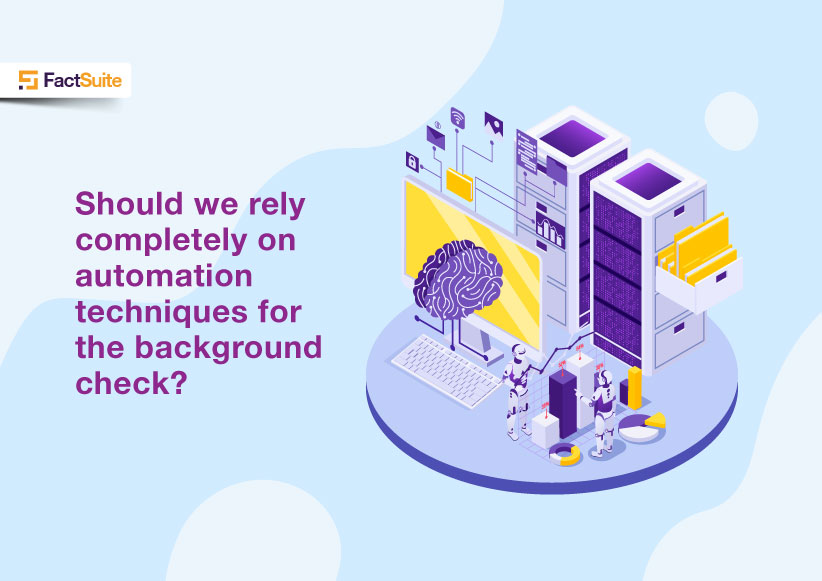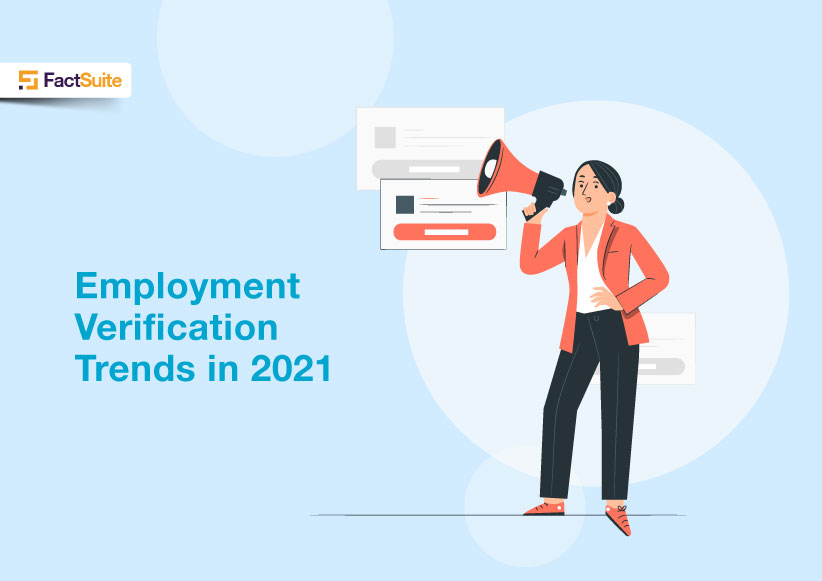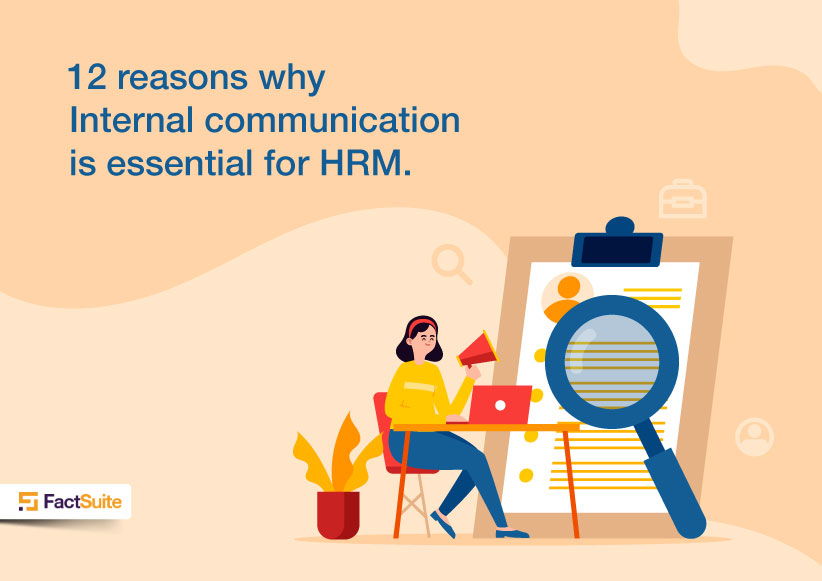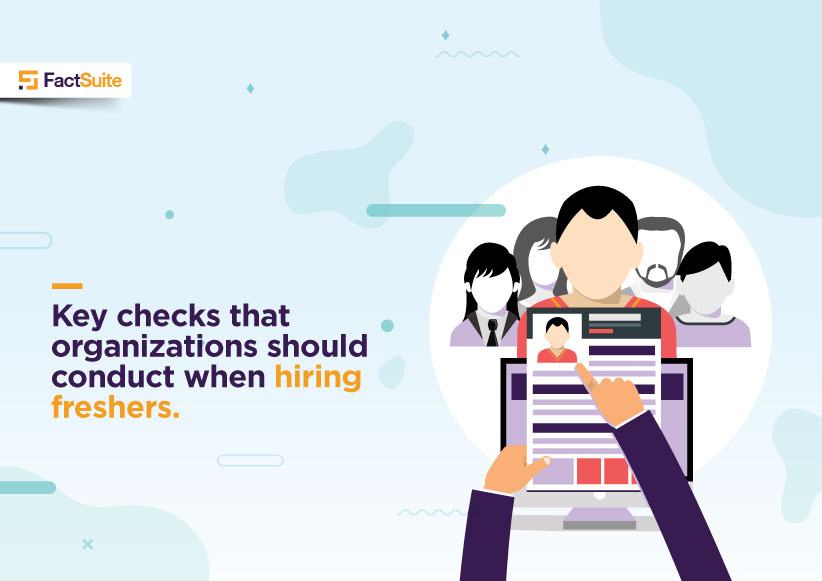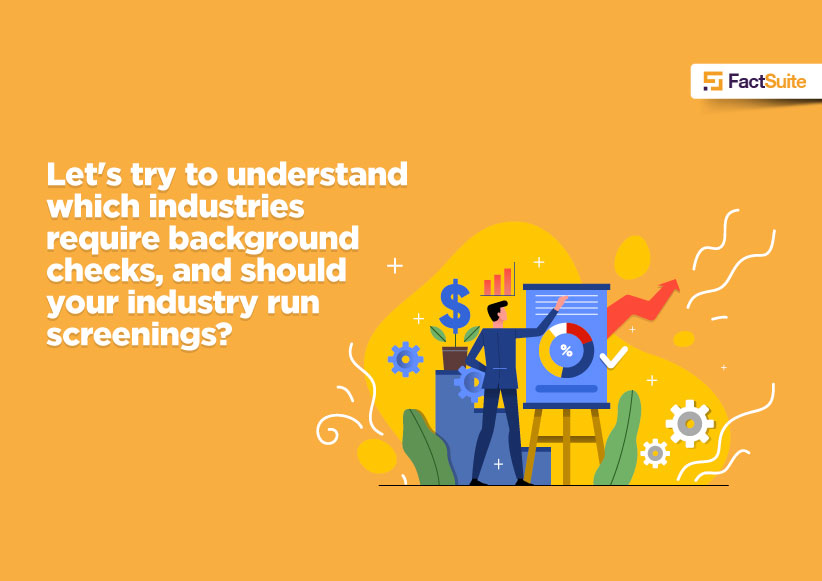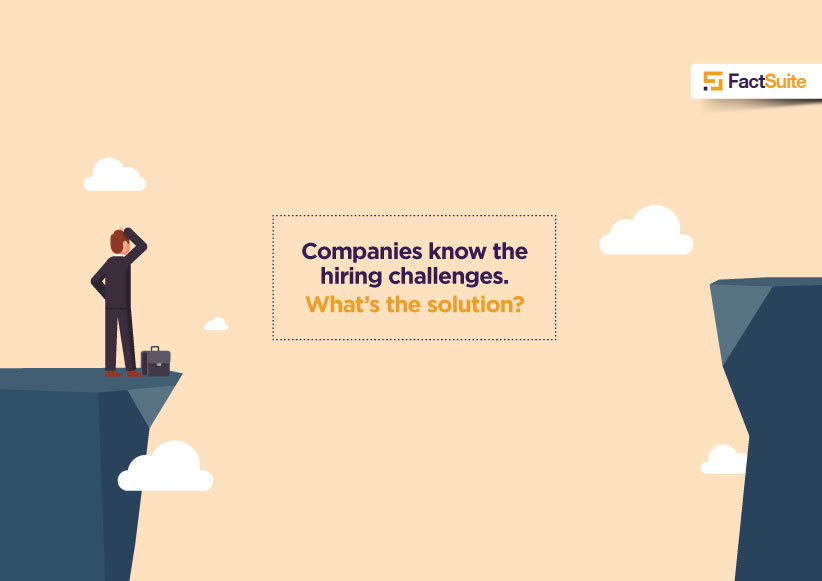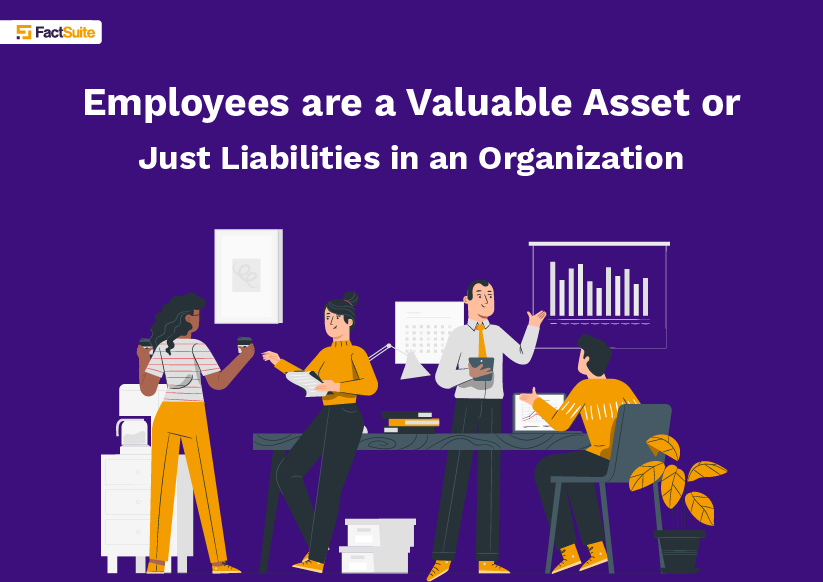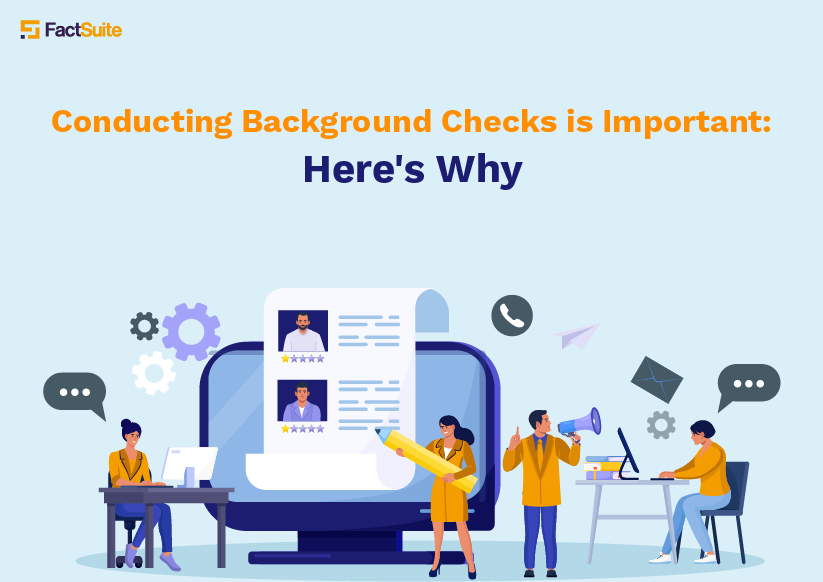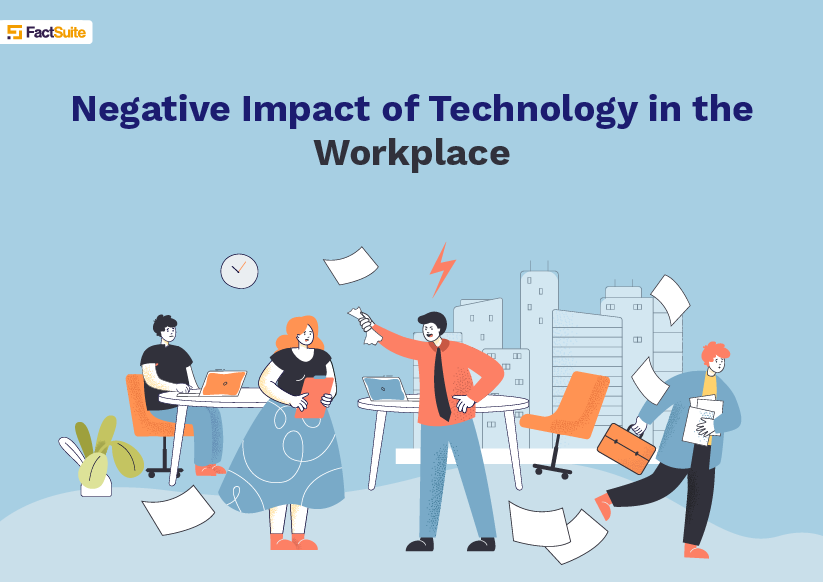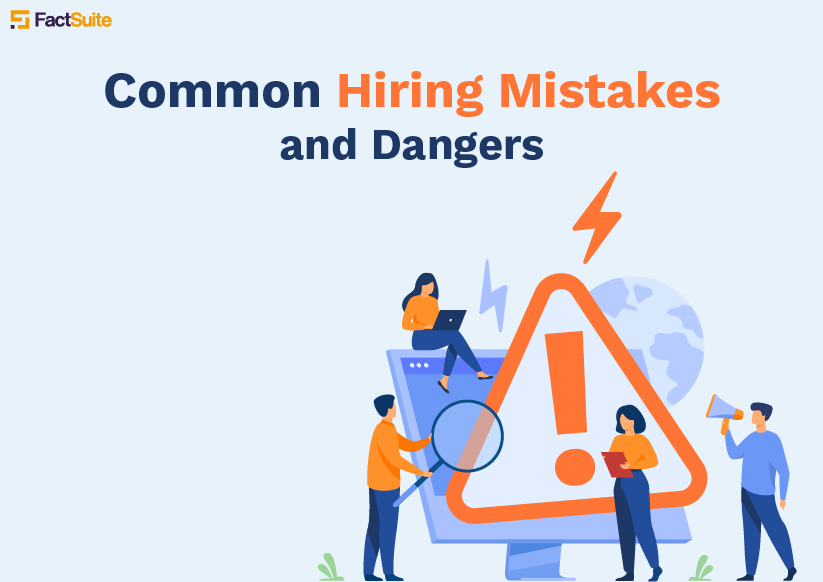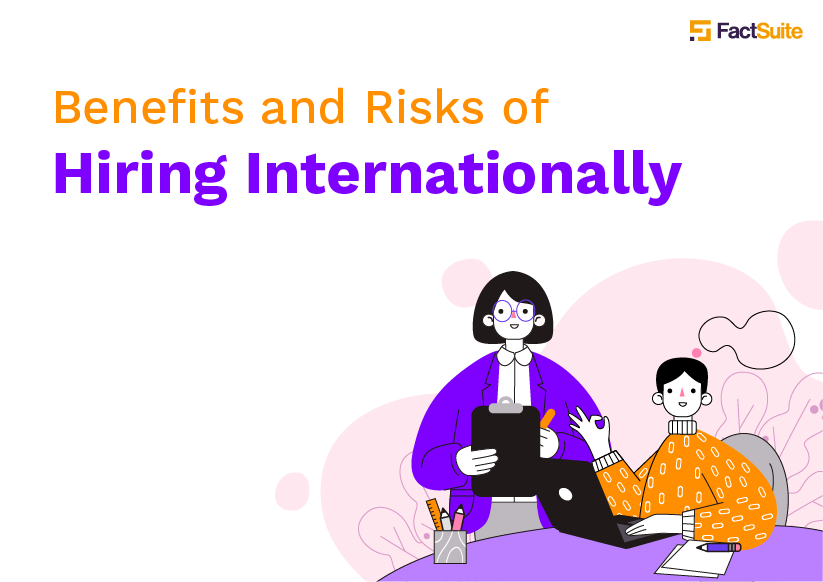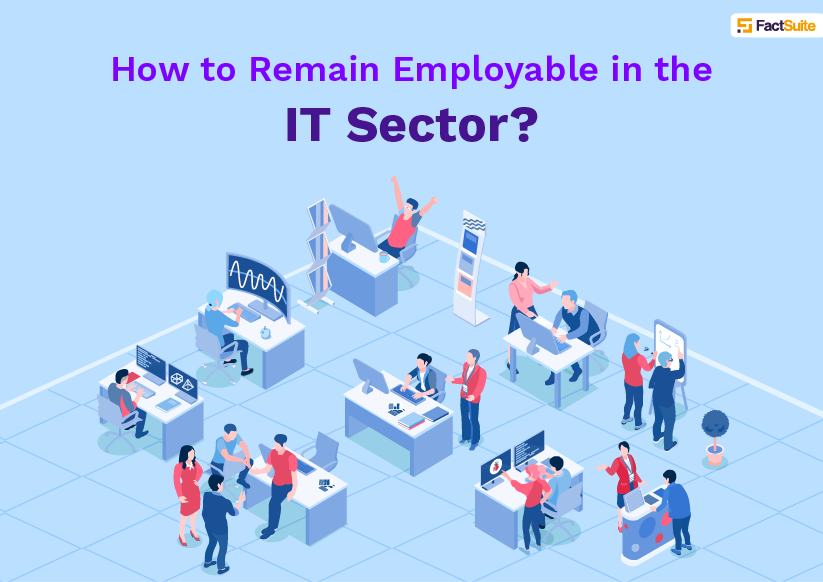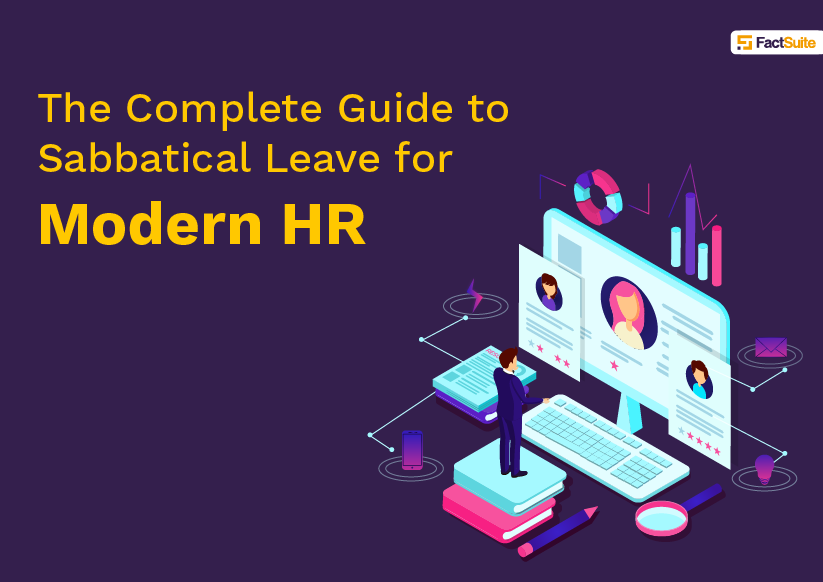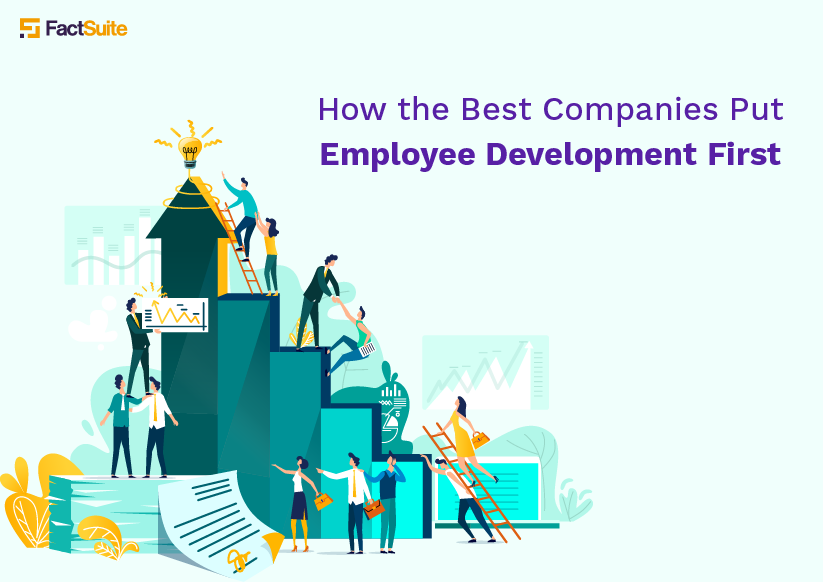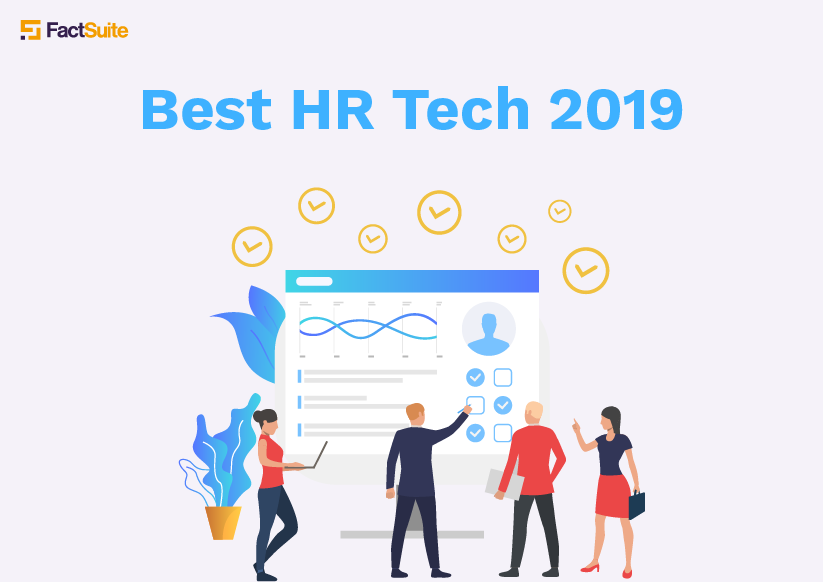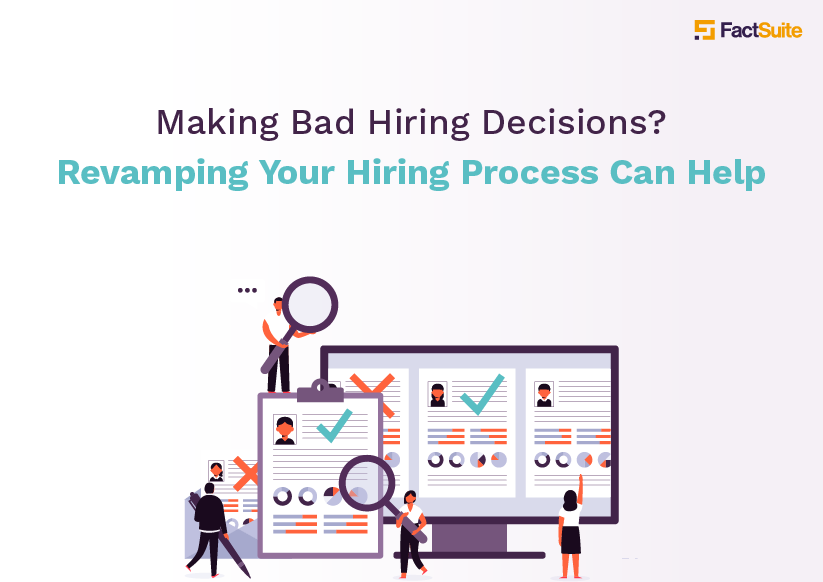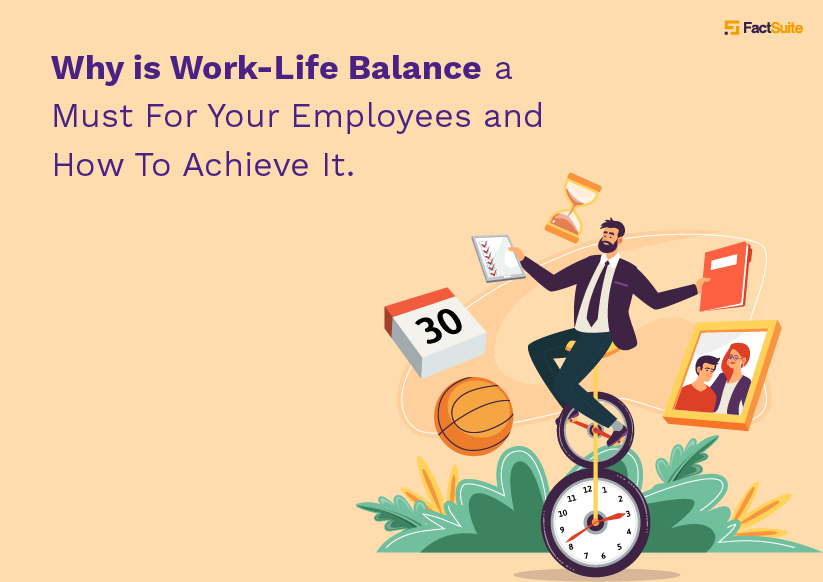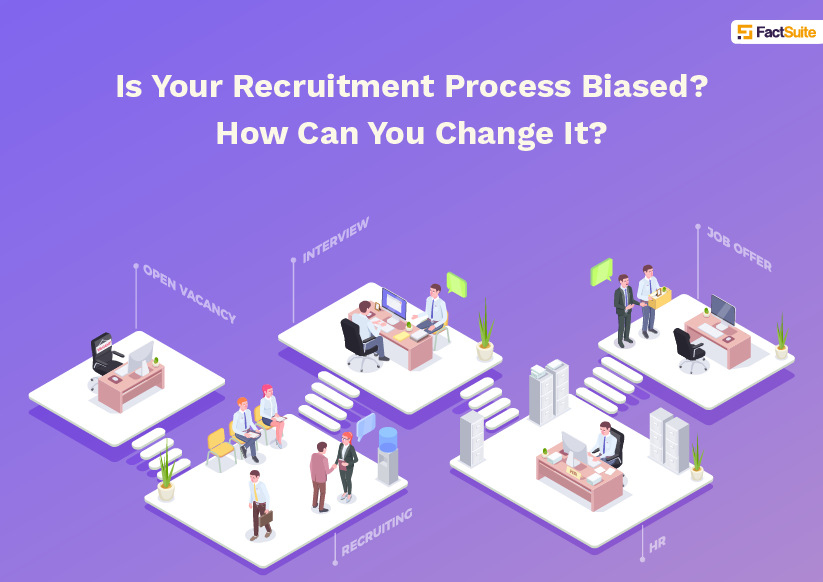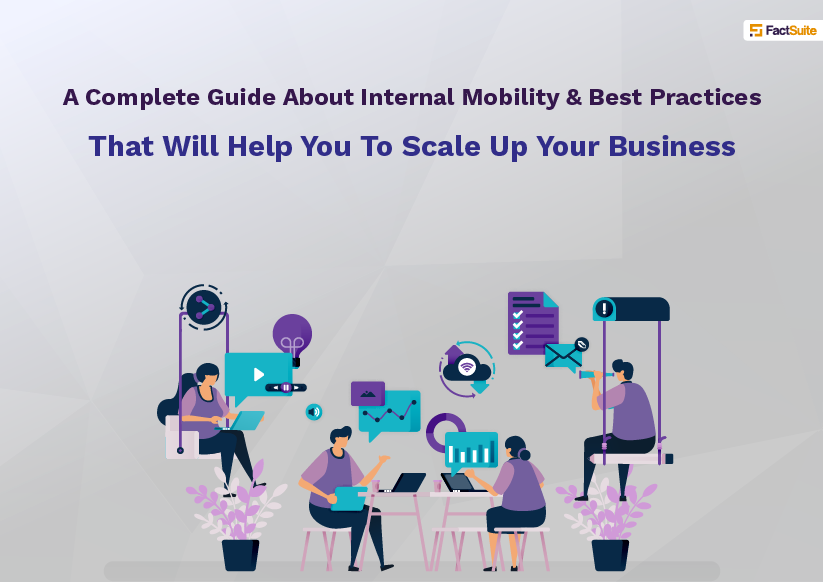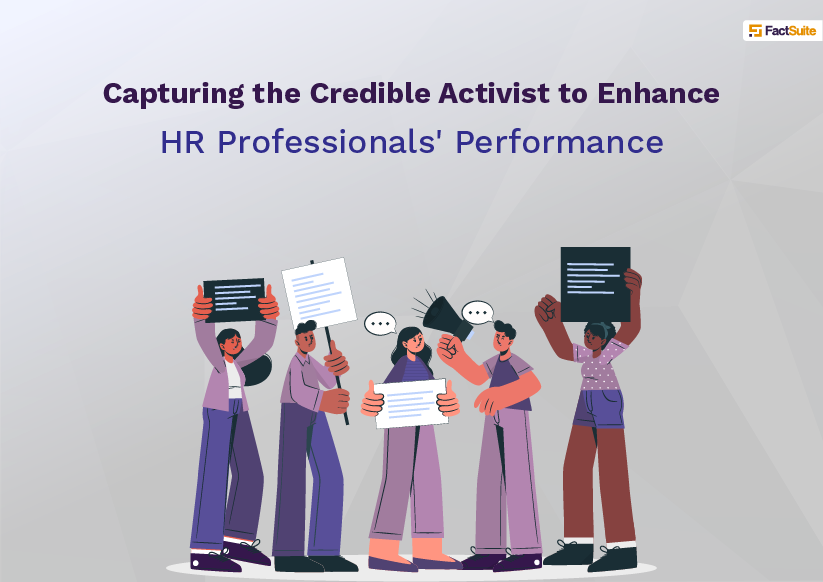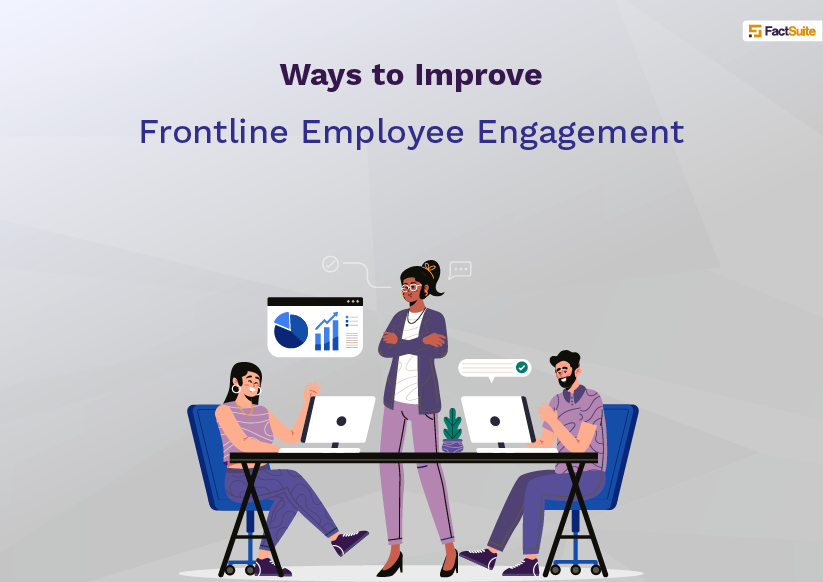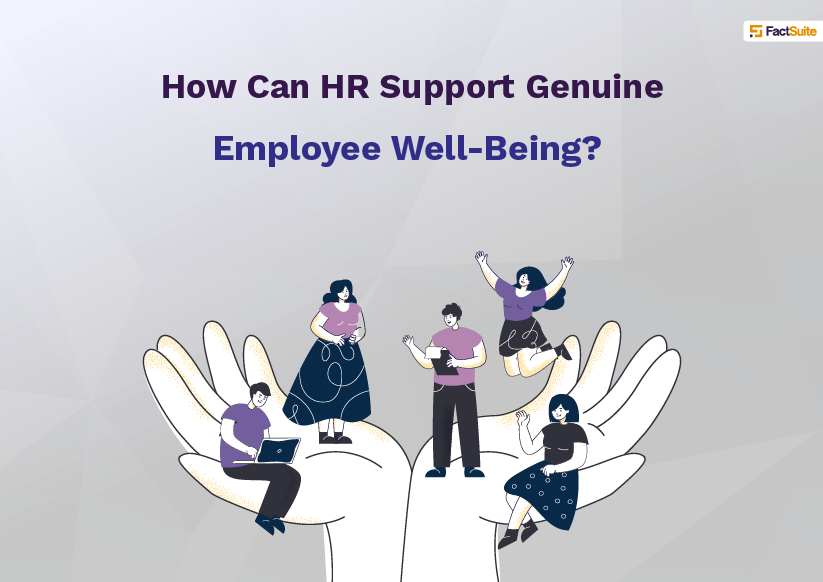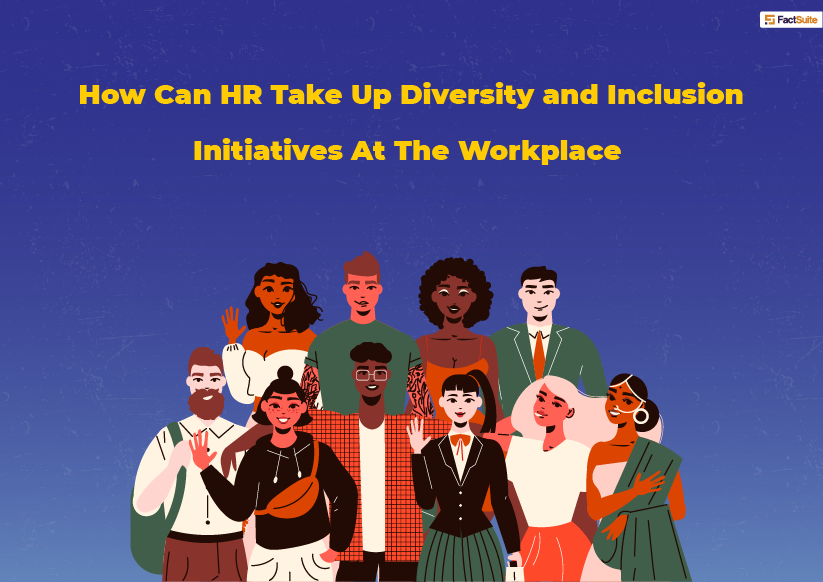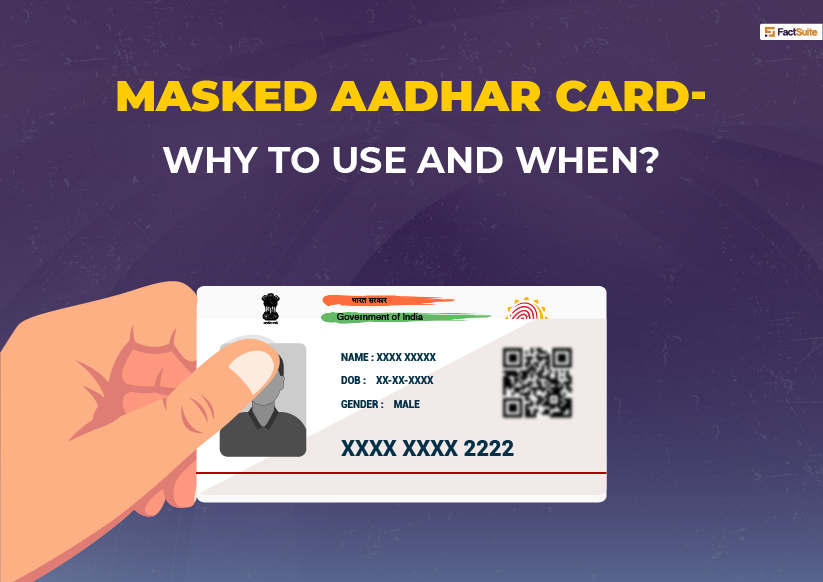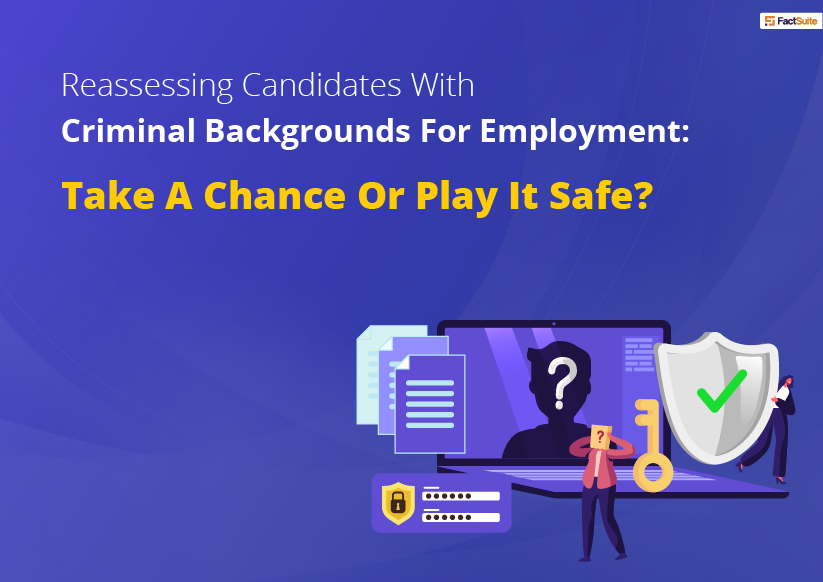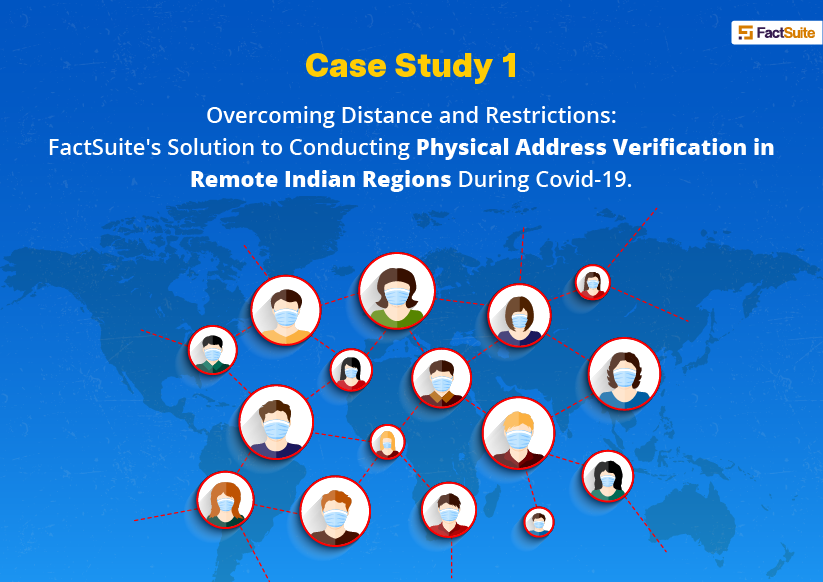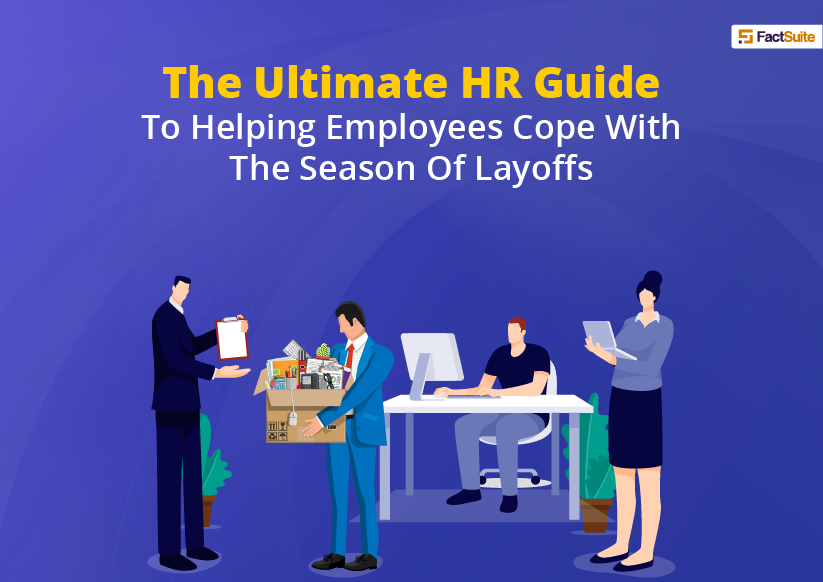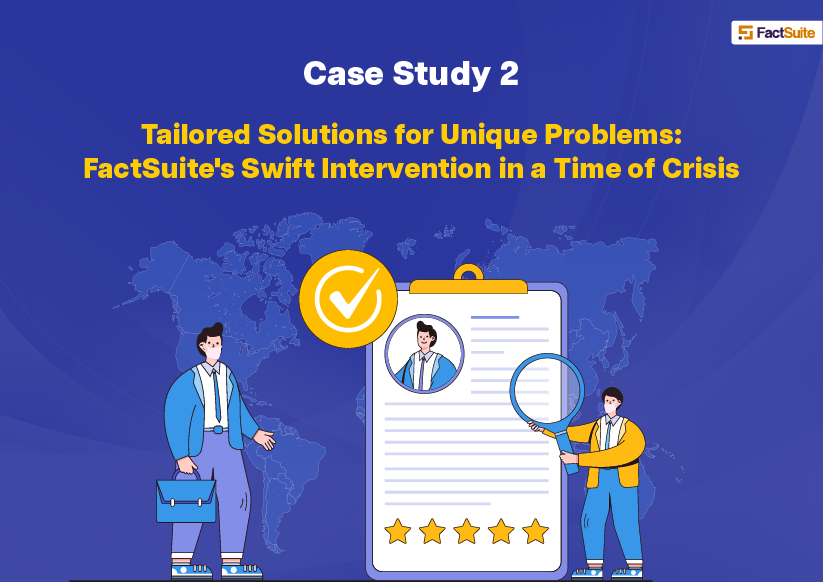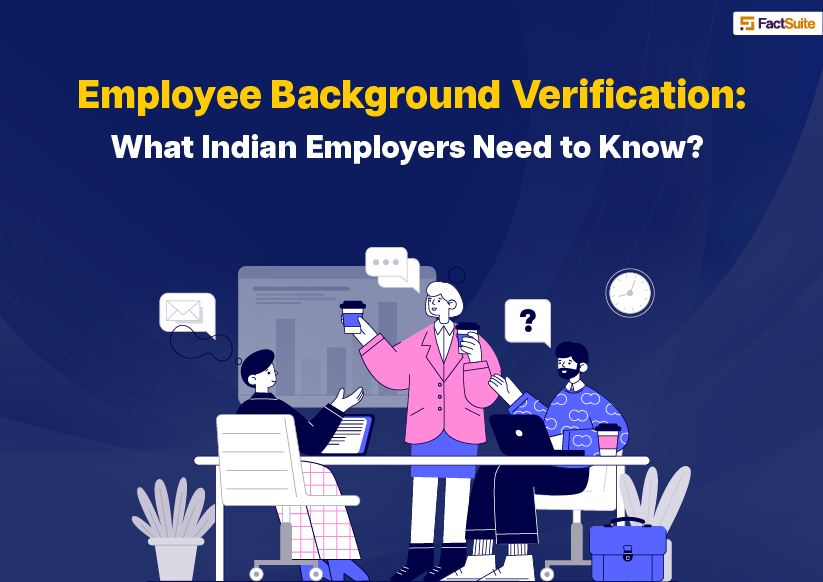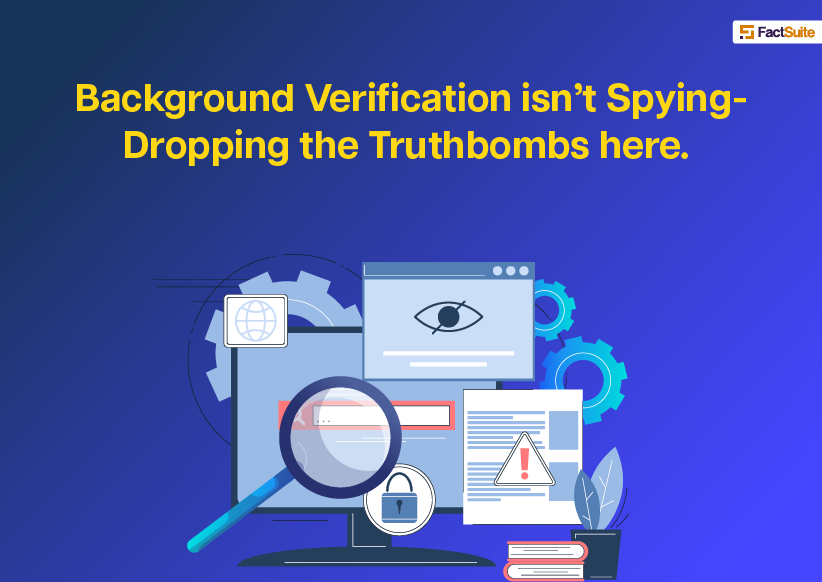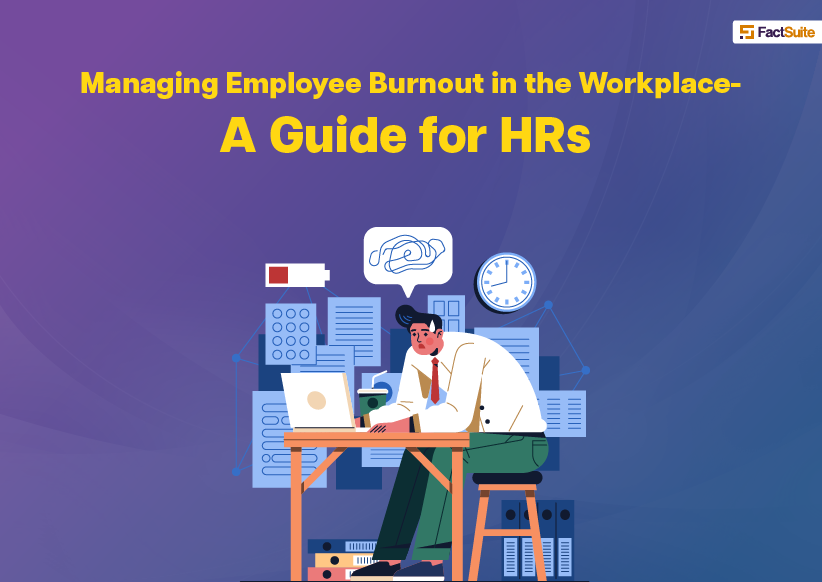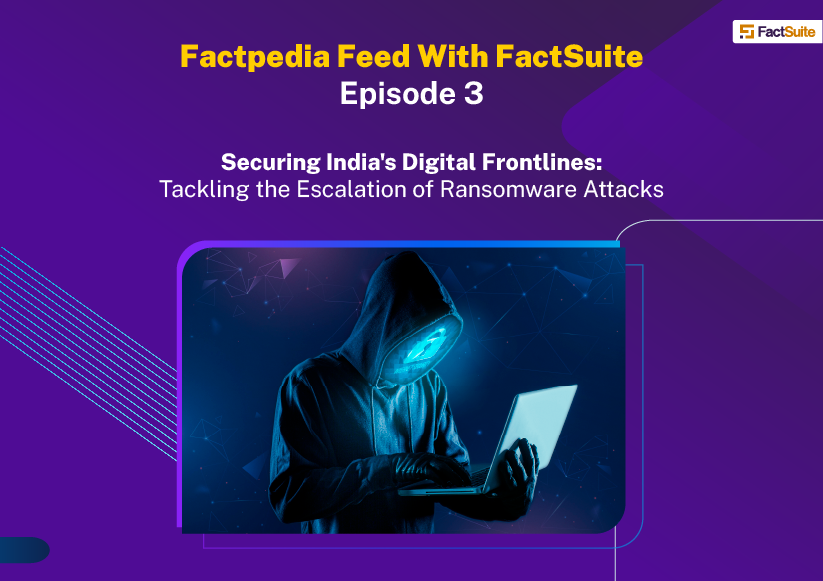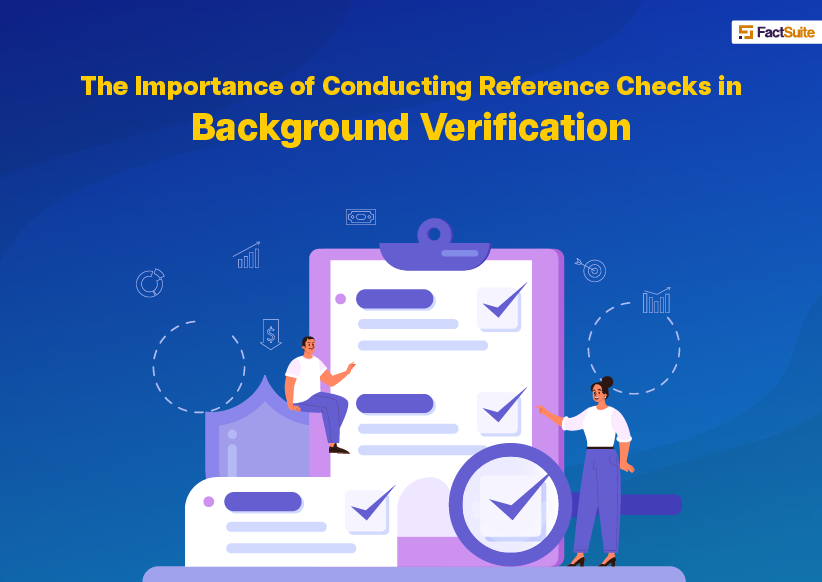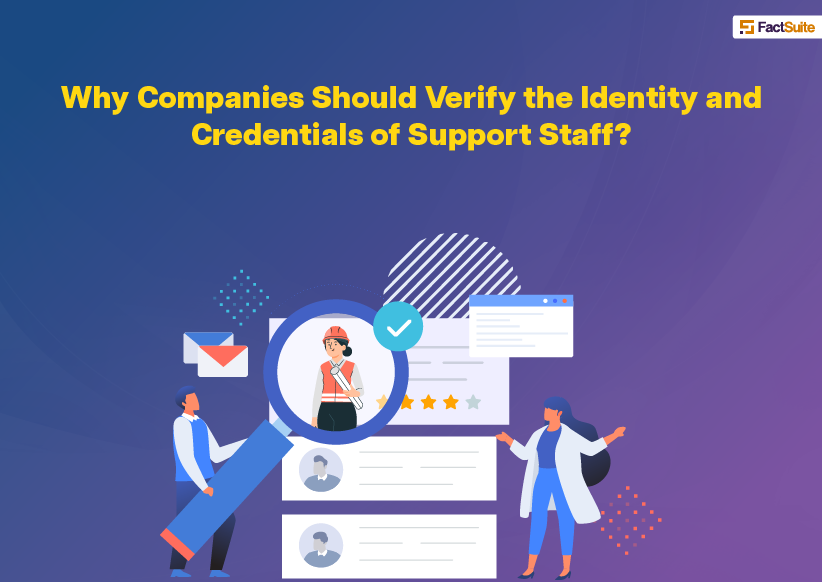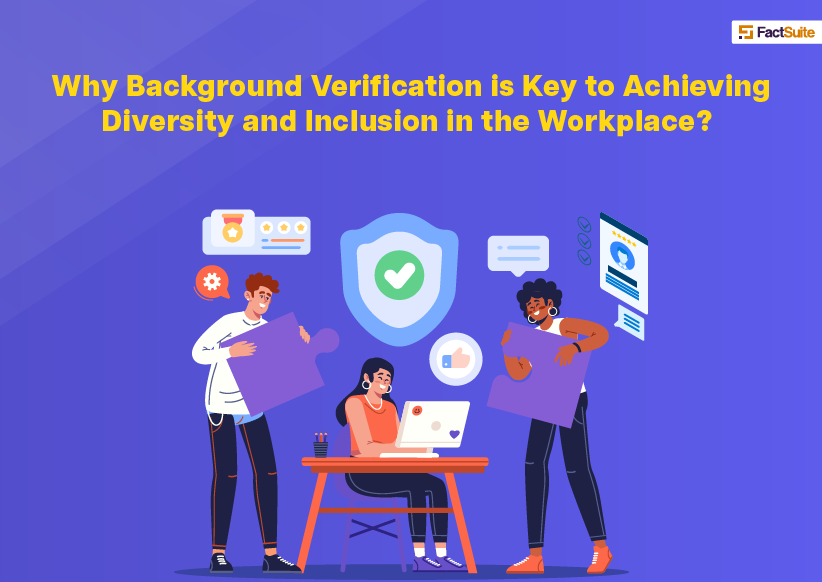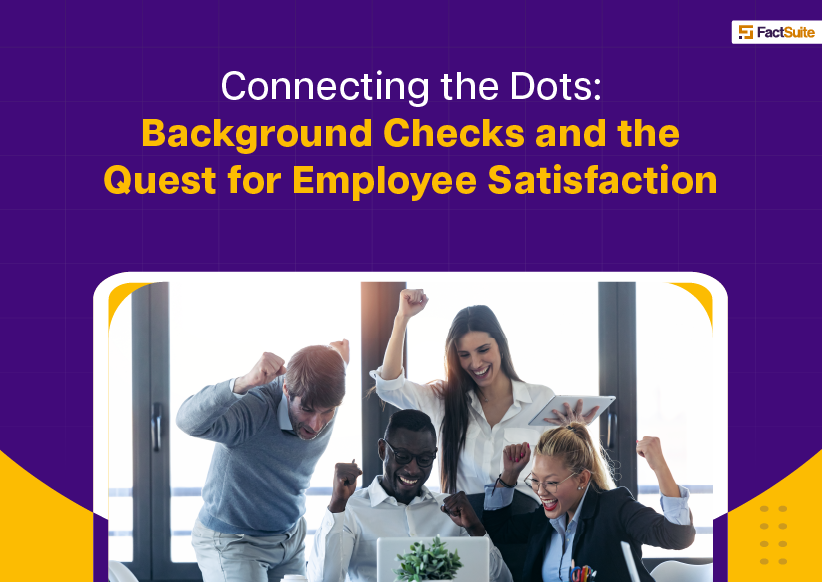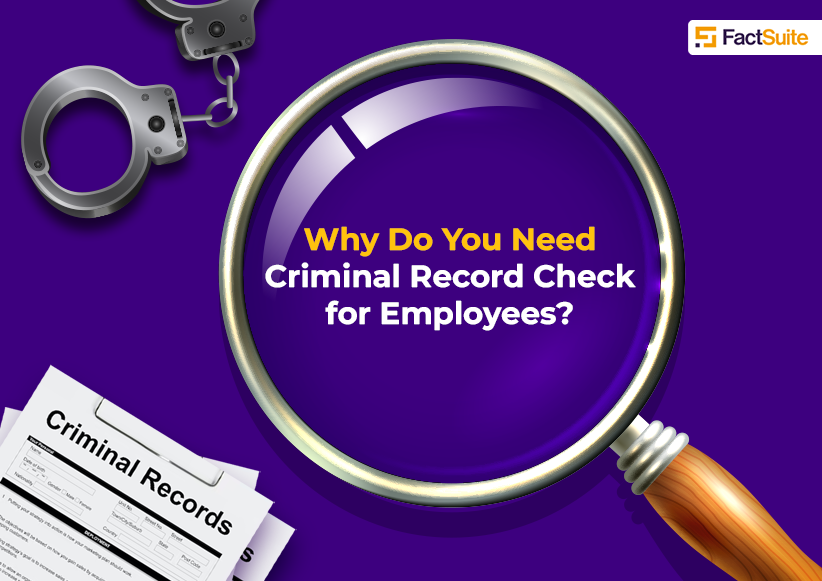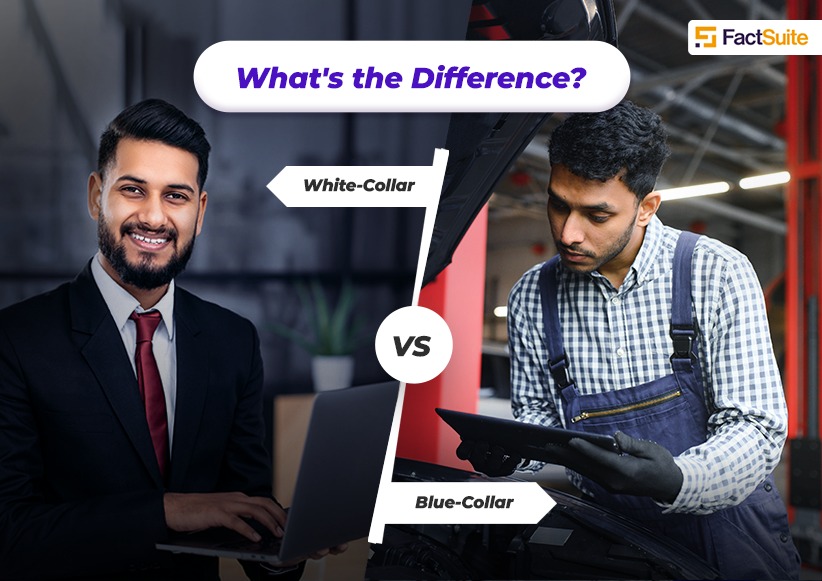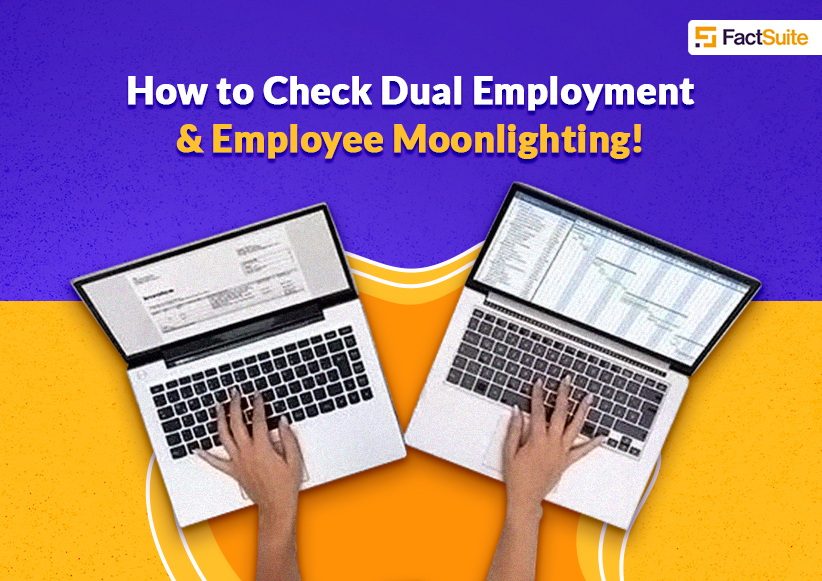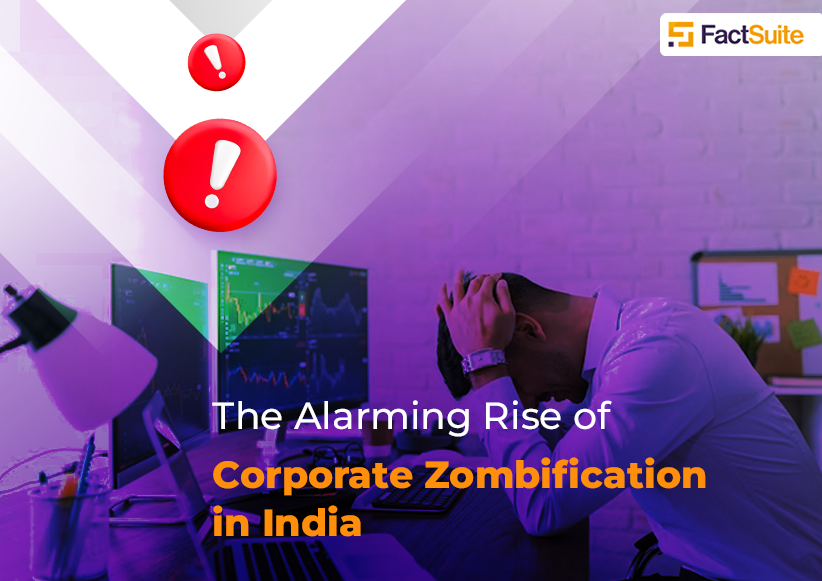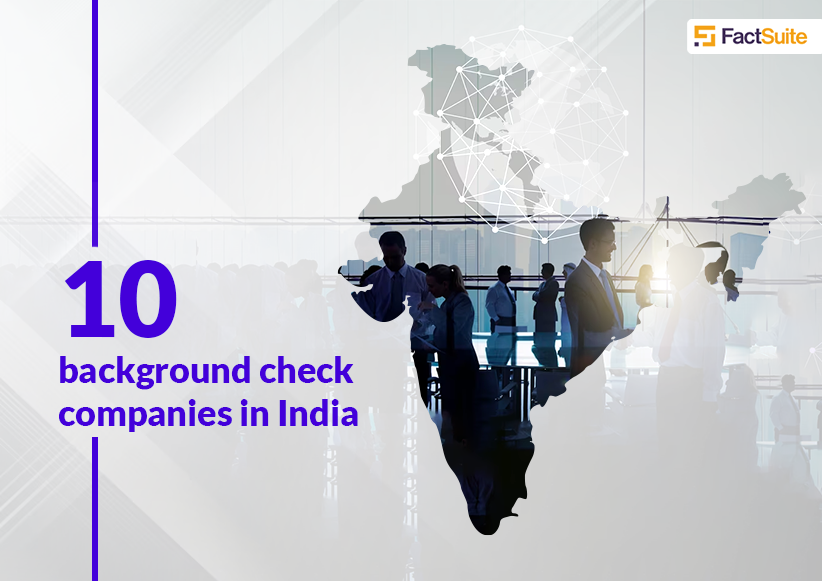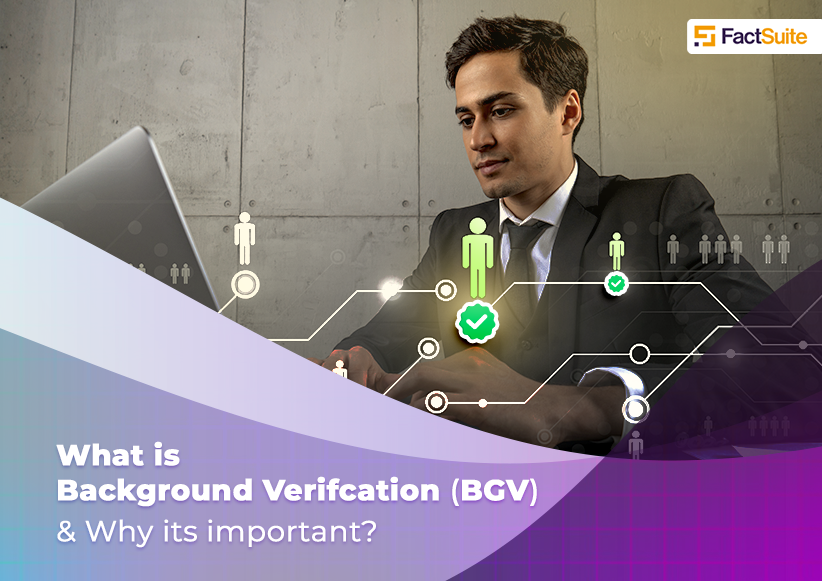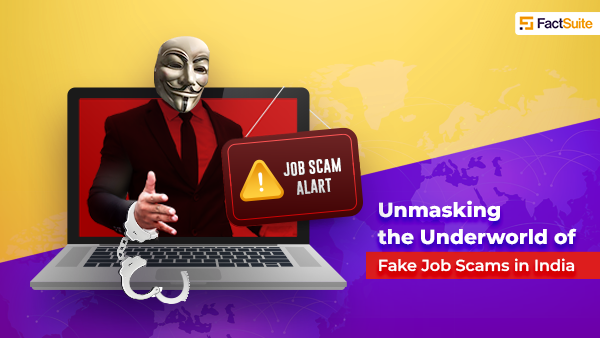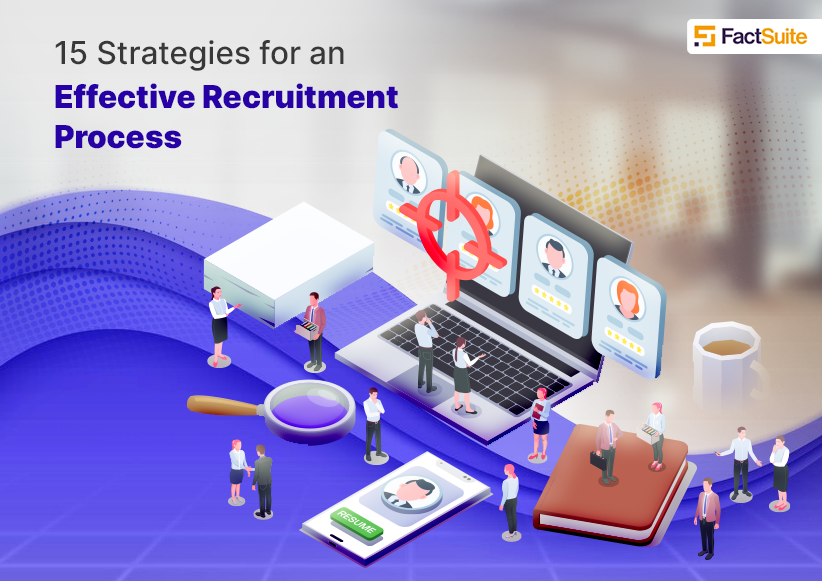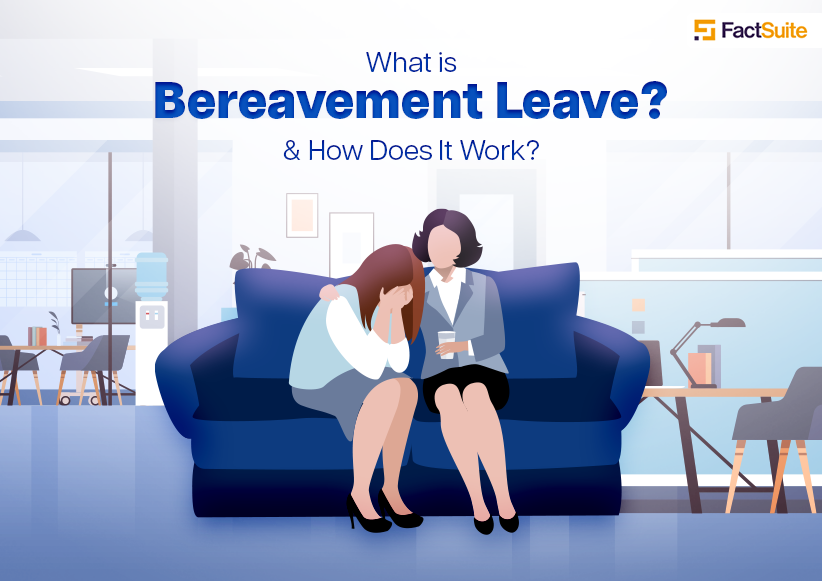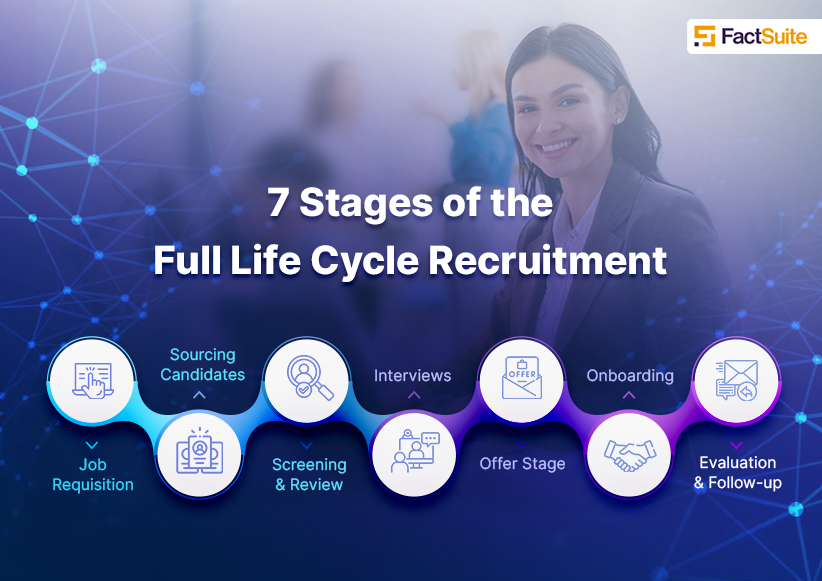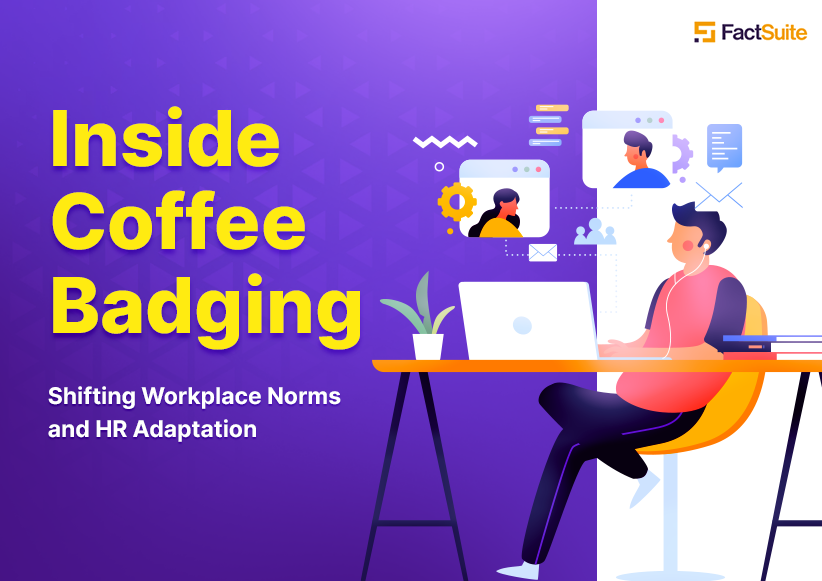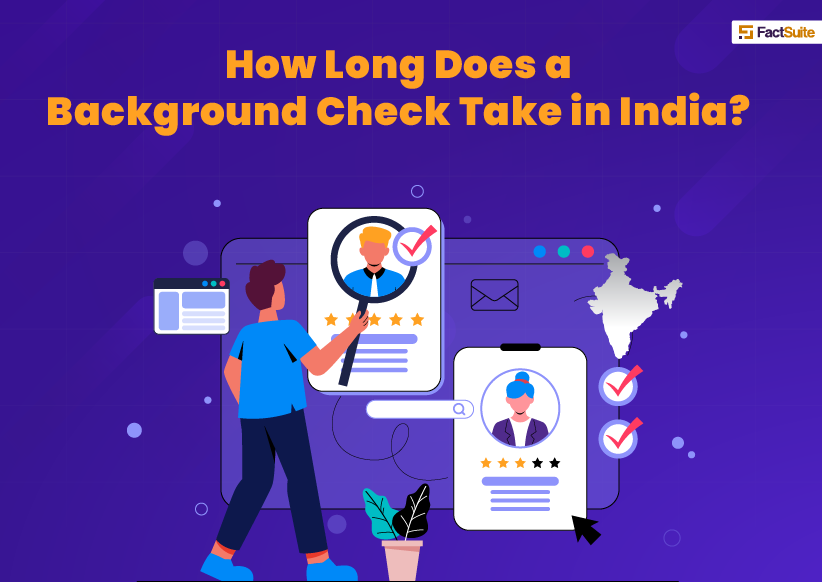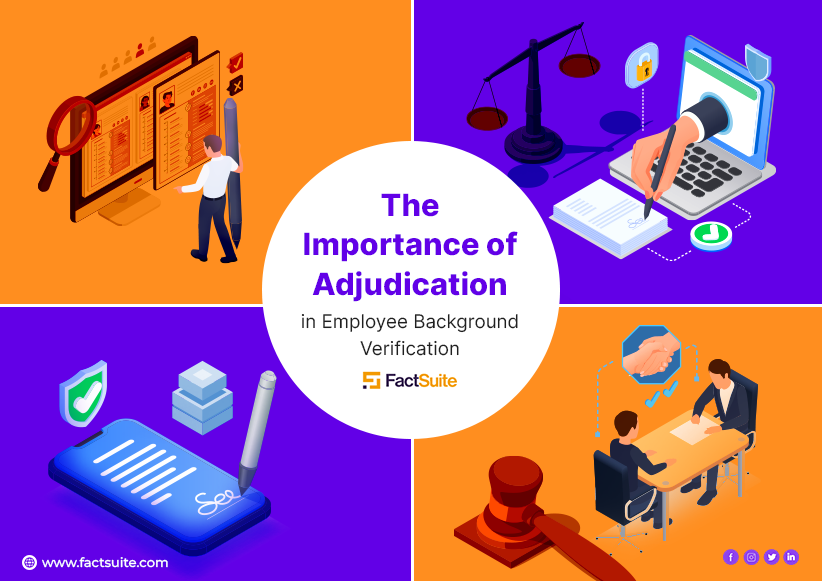The High Stakes of Background Verification: Why HR Can't Afford to Get it Wrong.
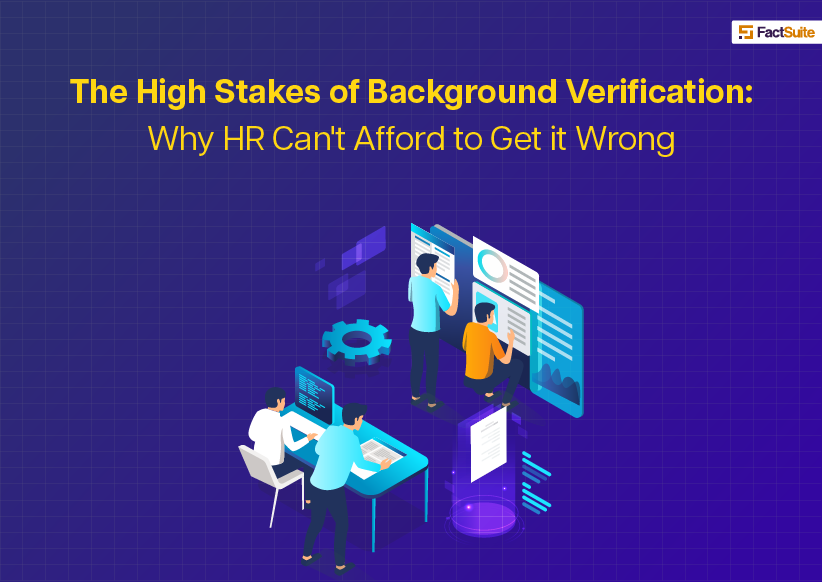
Talent acquisition and talent management are crucial processes for any organization to attract and retain top talent. However, these processes require a considerable investment of time, effort, and resources. To ensure that an organization makes the most out of its investment, it is essential to conduct a comprehensive evaluation of candidates before bringing a new hire on board.
The evaluation process should include assessing the candidate's qualifications, skills, and experience to ensure they are a good fit for the organization. It should also involve evaluating their potential cultural fit and alignment with the organization's values and goals.
Background verification has become an increasingly crucial part of the hiring process in India. Employers must ensure that the candidates they hire are not only qualified for the position but also trustworthy, ethical, and do not have a criminal record. Failure to conduct thorough background checks can result in negative consequences for the company, including legal issues, a tarnished reputation, and financial losses. This article explores the importance of background verification in HR and the risks of getting it wrong.
Table of Content
- Introduction
- Costs of Bad Hires
- The Role of Background Verification in Hiring
- The Negative Consequences of a Failed Background Check
- The Purpose of this Article
- What is background verification
- Definition and explanation of background verification
- The role of HR in background verification
- The legal aspects of background verification
- The importance of accurate background verification
- The risk of hiring unverified candidates
- The potential impact on company culture
- The impact on company reputation
- The cost of a bad hire
- Common challenges in background verification
- Best practices for successful background verification
- Conclusion
Introduction
India ranks fourth in the world when it comes to companies making poor hiring decisions, which can have a significant impact on their bottom line. According to a recent survey, 29% of Indian companies reported that just one bad hire can cost them an average of over INR 20 lakhs. This underscores the need for organizations to be more diligent in their hiring practices.
The survey also revealed that a staggering 84% of companies in India have been greatly affected by their poor hiring choices.
Hiring the right employees is essential for the success of any company, and background verification plays a critical role in ensuring that the right candidate is hired. The process of background verification has gained even more importance in recent years due to the rise of fraudulent activities in the job market, such as fake degrees, criminal records, and false employment histories.
Costs of Bad Hires
Bad hires can have significant financial and reputational implications for a company. Some of the costs associated with bad hires include:
-
Cost of hire: Finding the right candidate involves a lot of time, energy, and resources. When a bad hire is made, all of those investments go to waste.
-
Cost of training: Hiring a new employee often requires training, which means investing additional resources to get them up to speed. If that employee doesn't work out, then all that time and energy invested in training them is lost.
-
Cost of productivity loss: A bad hire can disrupt team dynamics, negatively impact morale, and make it difficult for teams to work effectively together. This can result in a loss of productivity and revenue for the company.
-
Cost of motivation loss: Bad hires can have a demotivating effect on high-performing employees, who may lose faith in the company's leadership and become disengaged from their work.
-
Cost of reputation loss: In today's age of social media, a bad hire can damage a company's reputation, leading to negative reviews and low employee morale. This can make it difficult to attract top talent in the future.
To avoid these costs, companies must carefully vet candidates during the hiring process and prioritize finding the right fit for the job. This can involve using a variety of assessment techniques, such as thorough background verification, to ensure that candidates have the necessary skills and cultural fit for the role.
The Importance of Background Verification in HR
Background verification is a process that involves verifying a candidate's personal and professional information before offering them a job. This includes verifying their education, employment history, criminal record, credit score, and other relevant details. Conducting thorough background checks can help employers to make informed decisions about the candidate's suitability for the job.
The Negative Consequences of a Failed Background Check
Failing to conduct an accurate background check can result in several negative consequences for the employer, including:
- Legal issues: If an employer hires a candidate with a criminal record or false information, they may face legal issues, especially if the employee causes harm to others.
- Tarnished reputation: A bad hire can damage the company's reputation and lead to the loss of customer trust and loyalty.
- Financial losses: A failed background check can result in financial losses, including costs associated with rehiring, training, and legal fees.
The Purpose of this Article
The purpose of this article is to provide a comprehensive overview of background verification in HR. It will cover the definition, types, legal aspects, challenges, and best practices of background verification, with a focus on India.?
What is Background Verification
Background verification is a process of verifying a candidate's personal and professional information to ensure that they are qualified, ethical, and trustworthy. The verification process includes verifying their education, employment history, criminal record, credit score, and other relevant details.?
Definition and Explanation of Background Verification
Background verification is a process that involves verifying a candidate's personal and professional information before offering them a job. The purpose of background verification is to ensure that the candidate is qualified for the job, has no criminal record, and is ethical and trustworthy. The verification process involves collecting and verifying the candidate's education, employment history, criminal record, credit score, and other relevant details.
The Role of HR in Background Verification
HR departments play a critical role in ensuring the accuracy and validity of background checks. They are responsible for designing and implementing the verification process, reviewing the results, and making hiring decisions based on the findings. HR professionals must be well-versed in the legal requirements for background checks and the procedures for obtaining and evaluating the necessary information.
The Legal Aspects of Background Verification
Employers must comply with state and federal laws that govern the use of background checks in the hiring process. These laws outline what information can and cannot be included in a background check, when the checks can be performed, and how the information can be used to make hiring decisions. Not following these regulations may lead to substantial legal and financial penalties.
The Importance of Accurate Background Verification
Accurate background verification is critical for employers in making informed hiring decisions. A thorough verification process helps identify candidates with a history of criminal activity or other red flags that could indicate potential problems down the line. Without proper verification, employers may be unknowingly hiring individuals with a history of misconduct, which can lead to a range of negative consequences for the organization.
The Risk of Hiring Unverified Candidates
The cost of hiring an employee is a frequently discussed topic, with studies showing that on average, companies spend around Rs. 25,500 to hire an employee with an average salary package of Rs. 3-4 lakhs per annum. However, what companies often overlook is the actual cost incurred due to a bad hire or a lost opportunity. Recent research indicates that companies spend more than Rs. 20 lakhs on average for every bad hire they make. This cost is significant and highlights the importance of making the right hiring decisions.
Hiring unverified candidates can put an organization at risk for a range of problems. These candidates may have a history of criminal activity or other problematic behaviour, which can negatively impact workplace safety, productivity, and overall morale. Additionally, organizations may face legal liability if they hire an employee with a history of misconduct who then engages in inappropriate behaviour on the job.
The Potential Impact on Company Culture
Hiring individuals with a history of misconduct can also negatively impact company culture. These individuals may bring negative attitudes or behaviours into the workplace, which can spread and cause disruption throughout the organization. Additionally, employees may lose trust in management if they perceive that the organization is not taking appropriate steps to screen candidates.
The Impact on Company Reputation
A failure to properly verify a candidate's background can also damage an organization's reputation. If an employee with a history of misconduct is hired, it can lead to negative media attention, loss of customer trust, and damage to the organization's brand image.
The Cost of a Bad Hire
Hiring the wrong person can have a considerable cost. Organizations may incur direct costs such as severance pay, recruitment costs, and legal fees. Additionally, there may be indirect costs such as lost productivity, decreased morale, and damage to the organization's reputation.
Common Challenges in Background Verification
When it comes to background verification, there are several challenges that HR departments may face. Some of the challenges include:
-
Inaccurate or incomplete information provided by candidates: Candidates may provide false information or leave out important details during the background check process.
-
Delays in verification processes: Background checks can take time, and delays can occur due to factors such as incomplete paperwork or difficulties in contacting previous employers.
-
Lack of standardization in background verification procedures: Different companies and industries may have varying requirements for background checks, which can make it difficult to establish a consistent process.
-
The role of technology in streamlining background verification: While technology can help streamline the verification process, it can also present new challenges in terms of data privacy and security.
Best Practices for Successful Background Verification
To ensure successful background verification, there are several best practices that HR departments can follow, including:
-
Developing a comprehensive background verification policy: HR departments should establish clear policies and procedures for conducting background checks, including what information will be verified and how.
-
Implementing a consistent and thorough verification process: HR departments should ensure that background checks are conducted consistently and thoroughly for all candidates, regardless of position or seniority.
-
Utilizing technology to streamline the verification process: HR departments can use technology such as automated screening tools and online databases to help streamline the verification process and reduce errors.
-
Ensuring compliance with legal regulations: HR departments should ensure that their background verification policies and procedures comply with all relevant legal regulations, such as those related to data privacy and discrimination.
Conclusion
Creating a safe workplace for employees is not just a legal obligation but also in the best interest of employers. Shockingly, 36% of employers have reported workplace violence incidents, leading to physical or emotional harm to employees and customers, as well as negative consequences for the company, according to a SHRM study. To reduce the risk of workplace violence, it is crucial to screen backgrounds before hiring. Background checks should include screening for convictions of violent crimes, which serve as an obvious red flag. Moreover, implementing new hire drug screenings across various industries has reduced worker's compensation claims by approximately 50%, according to a survey conducted by SHRM.
In conclusion, background verification is a critical process for HR departments to ensure that they are hiring qualified and trustworthy candidates. Failure to conduct accurate and thorough background checks can result in negative consequences such as legal issues, damage to the company’s reputation, and lost productivity. By following best practices and utilizing technology, HR departments can streamline the verification process and minimize the risks of a failed check.
Learn more about how ‘Poor Hiring Decisions Lead to Managers Wasting Hours’
Learn more about how ‘Revamping your Hiring Process can Help, if you’re Making Bad Hiring Decisions

